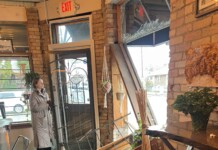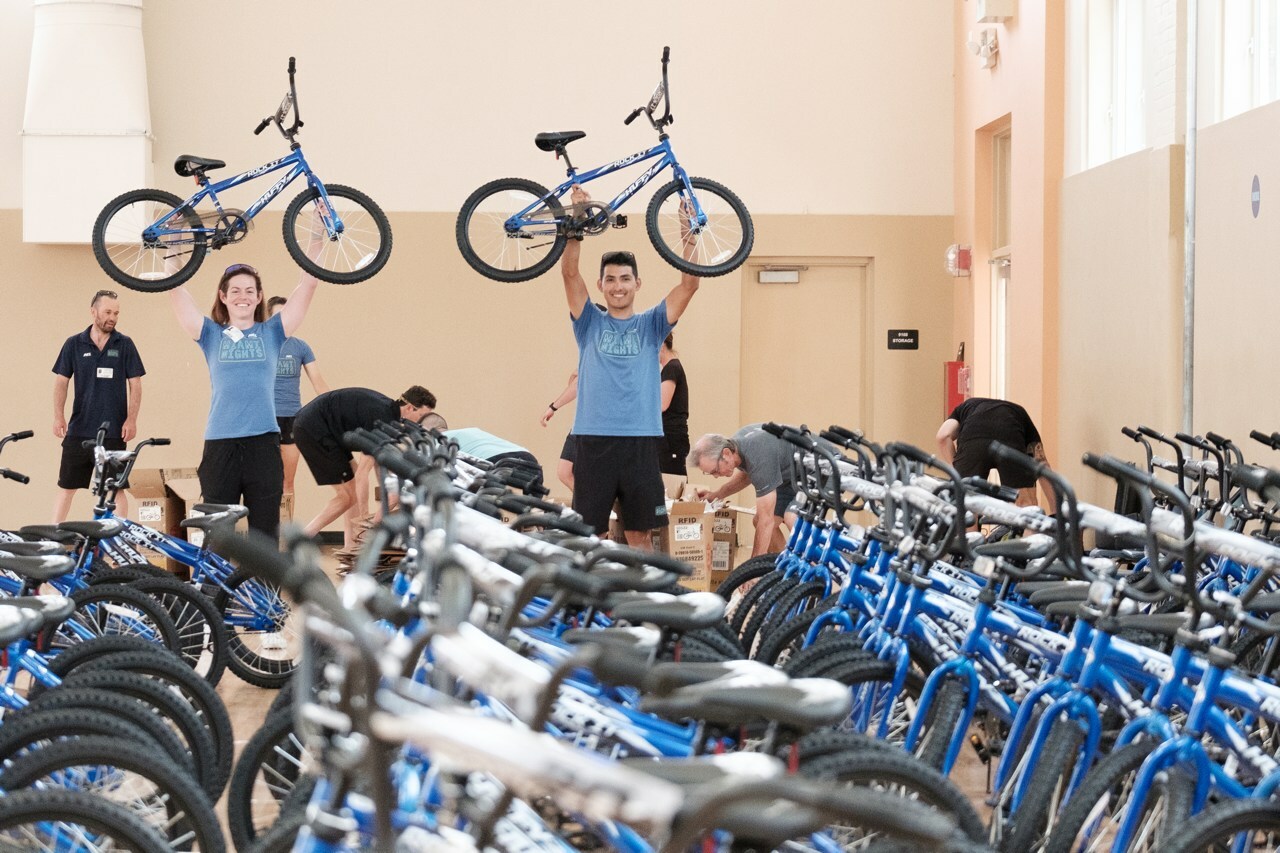By Charles Pekow, November 1, 2011
The folks who represent Utah across the continent in our nation’s capital like to ride bicycles. But the Republican-dominated Utah congressional delegation’s fondness for two-wheeling doesn’t mean it will support guaranteed federal funding for bicycling next year. In fact, quite the contrary: their philosophy means being tight with federal dollars and giving states maximum leeway with the federal dollars they get. This means they don’t favor guaranteed funding for bicycle-related projects that have come from the U.S. Department of Transportation for years.
Cycling Utah contacted the Washington offices of Utah’s two senators and three representatives to ask how they stood on bicycling-related issues facing Congress. We also asked if the representatives and their staffs enjoyed bicycling themselves. None of the legislators consented to be interviewed. Some of the staffs answered some of our questions by phone or email.
Like Utah, the Washington, DC area offers plenty of opportunities to ride. Just in the last two years, the city has been becoming an example to other urban communities by building bike lanes through the downtown area to encourage cycling to work. Even Pennsylvania Avenue, the nation’s main street that connects the Capitol to the White House, includes new bike lanes right in the middle of the road. And the city and environs include multiple bike trails among the national monuments, along the Potomac River, on abandoned rail lines, and in national and local parks.
But funding for bicycle projects has become endangered in this tight budget era. The largest threat comes from House Republicans who have drafted a surface transportation reauthorization bill to replace current law. It will come up next year and the plan involves removing the 10 percent setaside of highway funding for Transportation Enhancements. The Enhancements program has become by far the largest source of federal aid that benefits bicycle infrastructure. Utah got almost $8 million in FY 11. Since the program’s inception in 1992, the state has spent most of its Enhancements money on bicycle and pedestrian projects. If Congress approves the measure, states could – but would not be required to – spend any of their federal highway money on bicycling and pedestrian projects; they could spend it all building and maintaining highways. It would all be up to the Utah Department of Transportation (UDOT).
So where does the Utah delegation stand (or sit if we’re talking about a bike seat)? Do they appreciate biking firsthand? And what about the staffers who work for them in Washington? Many, it seems like to enjoy the fruits of the many bicycle facilities in the Washington area where they live.
Senior Senator Orrin Hatch, a Republican now in his 6th term, voted to make the Enhancements setaside optional during a failed effort to eliminate the earmark in the Senate two years ago. But he is a member of the Senate Bike Caucus.
(Congressional caucuses are non-partisan groups that usually meet only a few times a year to discuss issues. Generally, most attendees are staff. Senators and representatives can sign up for as many as they want though few will attend many meetings. Topics range from brain injury to zoos and aquariums to India. While they serve as forums to educate Congress, they carry no official legislative duties. Legislators may officially list themselves as members and never attend a function.)
The Republican-dominated Utah delegation indicated it favored the idea of leaving the decisions up to the states.
Hatch gave Cycling Utah a statement saying “Washington’s out of control spending has forced states across the country to make some tough decisions, such as how to best prioritize transportation funding. It is my belief we should focus the available funding in ways that will benefit the largest number of Utahns. Utah’s transportation officials are the most appropriate to address our state’s transportation needs, and that’s why I support UDOT’s surface transportation priorities as the most efficient and responsible way to maximize taxpayer dollars.”
Utah’s junior Senator Mike Lee, also a Republican, is now serving his first term and hasn’t established a bike track record, so to speak.
Lee has not joined the Senate Bike Caucus and doesn’t plan to, says his press secretary, Emily Bennion. She gave us a statement saying the senator “supports all kinds of transportation methods which most certainly includes bikes and biking issues (Safe Routes to School, Transportation Enhancements and Recreational Trails programs). That being said, these issues are really state issues and to help these programs and any others that Utah feels strongly about, Sen. Lee has co-sponsored the State Transportation Flexibility Act (S. 1446), which would unshackle the state of Utah from the restrictions on the use of federal transportation dollars so that they can be dedicated to those programs that will most benefit the citizens of Utah.”
The bill to which she refers (also cosponsored by Hatch) is pending before the Senate Committee on Environment & Public Works. It would allow state legislatures to opt out of using surface transportation funding for bicycle-related programs. Similar legislation, the State Highway Flexibility Act (H.R. 1585) is pending in the House. Both of Utah’s Republican representatives, Rob Bishop and Jason Chaffetz, cosponsored it.
“Rep. Chaffetz supports legislation to give states greater control over transportation,” explains his Legislative Director Mike Jerman. “Gas taxes are user fees paid by motorists, and these user fee revenues should be used to cover the costs associated with building and maintaining roads. These fees should also be used for non-road projects such as mass transit if such projects are a cost-effective way to reduce congestion on roads,” Jerman stated in an email.
Jerman added that “recreational trails; like parks, rec centers and other forms of recreation; should be funded at the state and local level. This is mostly quality-of-life issue. Bike trails clearly provide a benefit to local communities, and local taxpayers are generally supportive of funding these programs with local tax dollars. Bike trails do not have a significant federal nexus because they do not play a significant role in moving goods and services from one state to another.”
Chaffetz has not joined the Congressional Bike Caucus (the House equivalent of the Senate group). “He has cut back on joining caucuses unless it relates to one of his committee assignments or to Utah,” Jerman explains. “When he came here, he joined a lot of caucuses but he cut back. We get requests all the time.”
Chaffetz keeps a bike in his office that he uses to ride around town sometimes but he doesn’t need to bike to work as he sleeps in his office when he’s in Washington.
Bishop, meanwhile, has also shown animosity toward mandatory federal funding of bike trails. He voted against Enhancements back in 2003, the last time it came for a House vote. Two years ago, he sent a letter to the Committee on Transportation & Infrastructure listing 19 priority projects he wanted funded in his district, ranging from streetcars to the Utah Transportation Center. None involved bicycling. But he said he was merely passing on a list of projects proposed by constituents, so the omission may have been caused by a lack of lobbying on behalf of bike enthusiasts.
Bishop Press Secretary Melissa Subbotin indicated that the representative is not inclined to support federal funding for bike projects. “We’re trillions of dollars in debt” and have to look for ways to cut federal spending, which means even worthwhile programs need to face the chopping block, she says. “We just don’t have the money at the end of the day.”
Subbotin wouldn’t say specifically how Bishop would vote on the transportation reauthorization bill but said he thinks states should probably have the right to determine whether they want to spend all their highway money on highways instead of Enhancements.
Utah’s lone Democrat in Congress, Rep. Jim Matheson, expressed more sympathy for ensuring that states keep spending at least some money on bike projects. He gave us a statement saying “I believe that it strengthens our economic competitiveness when we modernize our transportation system. Infrastructure upgrades also improve safety, efficiency and enhanced quality of life for our communities. Programs such as Safe Routes to Schools and the Recreational Trails should continue to be part of the federal surface transportation portfolio. However, given the tough circumstance we face with balancing the federal budget, every dollar we allocate must be carefully scrutinized and belt-tightening is inevitable. I don’t think any one program should bear a disproportionate share of the budget cuts, however.”
Matheson voted to maintain Enhancements in the 2003 House vote. He also joined the Congressional Bike Caucus.
The Safe & Complete Streets Act of 2011 has been introduced in both houses (S. 1056 and H.R. 1780). The bill would require states to consider the needs of all users (including bicyclists) in most federally-funded transportation projects. No member of the Utah delegation has cosponsored it.
But the staff and reps do like to ride. “The majority of staffers in our office do own bikes, any many of them enjoy the beautiful trails around the area,” says Bennion of Lee’s office.
Matt Harakal, Hatch’s DC press secretary told us the senator “does not ride (he prefers the elliptical). But we do have a number of staff who enjoy getting out on the trails when possible (both DC and our Utah staff).”
Matheson said “as a husband and father of two young sons, I enjoy bicycling with my family here in Utah on the bike paths near my home and in the foothills around Salt Lake City. Several members of my Congressional staff, both in Washington, D.C. and in Utah, either cycle to work, or for recreation or both.”
Bishop doesn’t have much time to ride, Subbotin says. Several of his staffers do, including the chief of staff, who participates in triathlons. But Subbotin declined to make him available for an interview. Subbotin says she sometimes uses the growing Capitol Bikeshare program to take a bike to work or to a farmers market. “I’ve had two bikes stolen,” she says.
Chaffetz likes to ride the scenic bike trails around Washington (on the National Mall and along the Potomac, where a popular trail connects Washington with George Washington’s Mt. Vernon plantation, and to run errands. With one exception, everyone working in Chaffetz’s Washington office owns a bike but only one rides to work regularly, according to Jerman.
But Jerman found Utah a better place for mountain biking than Washington.”When I lived in Utah, I rode quite a bit.” He says he especially enjoyed the Ridge Trail in American Fork Canyon. But “it’s been a long time since I’ve done that. I had a serious accident on that trail, so I didn’t go back.” No place he found in the Mid-Atlantic can match it, he says.
But the Washington area bike trials are more well used, he found. “In the summertime in Utah, I could just go out on a trail and not share it with anybody.”








